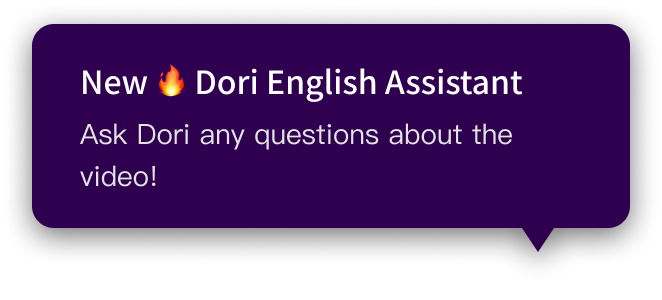Subtitles section Play video
-
Hello. My name is Emma, and in today's lesson, I'm going to teach you some new words you
-
can use to say: "like" and "don't like". Okay? So, one thing I notice with a lot of students
-
is they always say: "I like Justin Bieber.", "I don't like Justin Bieber.", "I like movies.",
-
"I don't like movies." It gets a little bit boring. Okay? It's... If you're always using
-
this word... There's no problem with the word "like", but it does get a little bit boring.
-
So, today, I'm going to teach you some new expressions that are more exciting, that mean
-
the same thing. So, let's look at some of these words. Okay. So, I have here the word:
-
"I like reading." This is something I love doing. And then I wrote something I don't
-
like. "I don't like cooking." I'm terrible at cooking, and it's actually one of the things
-
I really, really do not like in my life.
-
I want you to think about something you like and something you don't like. Maybe you like
-
movies. Maybe you don't like winter or cold. Okay? So think about one thing you like, and
-
one thing you don't like. Okay. Once you have that in your mind, I want you to follow me
-
as I teach you some words to describe your feelings. Okay?
-
So, the first word we can use when we talk about like is "enjoy". For example: I enjoy
-
reading. I enjoy movies. I enjoy shopping. I love reading. I am passionate about reading.
-
For this one, it means very strong like; you really, really like something. You are passionate
-
about reading. Okay? And I do really like reading a lot, so I would use this.
-
Please pay attention to the preposition that goes with this. "I am passionate about" something.
-
Are you passionate about music? Are you passionate about Justin Bieber? Or maybe you're passionate
-
about the Beetles, or Taylor Swift. Maybe you don't like them at all. But think about
-
something you're passionate about.
-
We can also use the word: "I am fond of reading." I am fond of reading. Similarly, I am a fan
-
of reading. I am a fan of hockey. I am a fan of soccer. I am a fan of baseball. I am a
-
fan of Canada. Okay? So, again, this means you really like something. "I am interested
-
in..." I am interested in shopping. If you like a guy or a girl, you can also use this
-
too, for someone you have a crush on. I'm interested in Brad Pitt. I'm interested in...
-
Not Justin Bieber, but I can't think of any other names. I'm interested in Bob.
-
"I am into..." I am into scuba diving. I am into travelling. I'm into going to the beach.
-
Okay? So, again, all of these mean the same thing, pretty much as "like" or "love".
-
So, now, let's look at some words that have the opposite meaning: don't like. Okay? And
-
like I told you before, I don't like cooking. I hate cooking. Now, if you want to sound
-
like an academic at an academic level, we also have this word "loathe", and it means
-
hate like a lot. You really, really hate something; you loathe it. Not love it. Loathe. Okay.
-
You can't stand it. I can't stand cooking. I am not much of a fan of cooking. Cooking
-
drives me crazy. I am sick of cooking. I am tired of cooking. Cooking is not my cup of
-
tea. So this one, actually, I really like. It's a very strange expression: "Not my cup
-
of tea", and it means you don't like something. Justin Bieber is not my cup of tea. You know,
-
certain types of food, they're not my cup of tea. Okay? "Not my cup of tea." And again,
-
this has nothing to do with tea; it actually just means you don't like something. You can
-
also say: "It's not my thing." Cooking is not my thing. Playing video games is not my
-
thing. Okay? So just some examples, here.
-
So, when you're speaking to your friends, when you're talking maybe in class, I want
-
you to try to use some of these words just so you're not always saying: "I like, I don't
-
like". These will make your vocabulary a lot more interesting.
-
Now, there's one other thing I wanted to tell you about these words, and that's, looking
-
at my example here, when you have two verbs in a sentence, when you have verb one, verb
-
two, something has to happen to the second verb. Either the second verb is going to end
-
in "ing" or it will end in "to" verb. Now, for those of you who maybe this is a little
-
bit too advanced, don't worry about this. For those of you at an advanced level, I'm
-
just going to make a point. Pretty much all of these, if you have a verb here, it's going
-
to end in "ing". So: "I enjoy making. I love listening. I am passionate about..." All of
-
these, the second verb will be an "ing". Okay?
-
So, I hope you come visit our website at www.engvid.com. Also, I hope you subscribe to my YouTube channel.
-
I am very passionate about teaching English. I hope you are a fan of engVid. I hope you
-
enjoy taking our quiz. And I invite you, so you can test out these expressions, come practice
-
them. So, until next time, take care.


